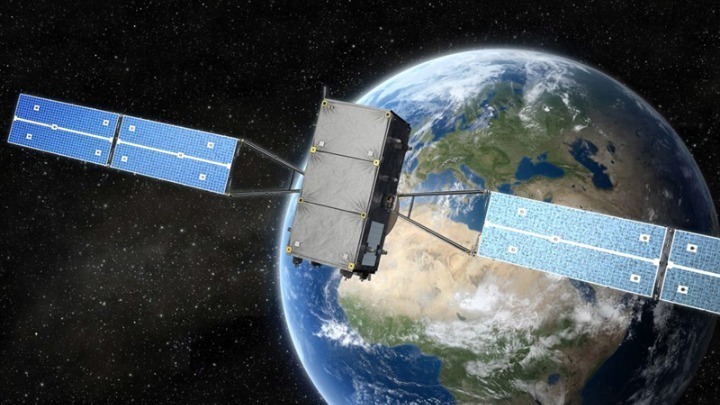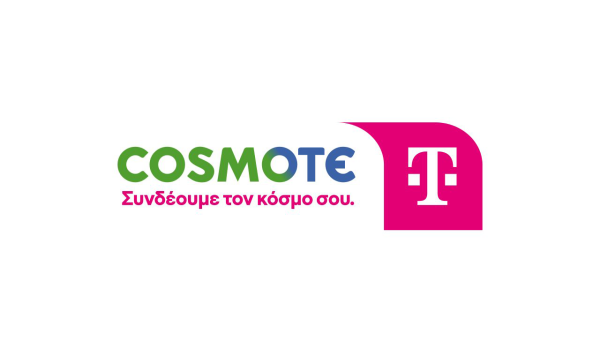
The design of the new generation of Hellas Sat telecommunications satellites has begun and the new versions will incorportate “revolutionary technologies, satisfying the much higher demands for data transmission speeds and security in communications,” Hellas Sat CEO, Mr Christodoulos Protopapas, said on Saturday, in an interview with the Athens-Macedonian News Agency’s Thessaloniki-based radio station ‘Praktoreio 104.9 FM’.
He noted that this will include the use of laser optics, “something groundbreaking for the sector”, and that the decision has already been made to launch either one large or two medium-sized new satellites into the orbital position occupied by Greece and Cyprus (39th eastern meridian in the geostationary satellite orbit).
According to Mr Protopapas, Hellas Sat 5 and 6 will be “satellites with an innovative payload using optical telecommunications”, adding that a first cooperation protocol with the German firm OHB System AG has been signed, laying the foundations for a very innovative system for space technology, that will use laser beams from geostationary orbit to provide high speed telecommunication links.
There will also be an effort to use the Helmos Observatory in Greece to implement the new satellite technology solutions, in collaboration with the Greek government and the Hellas Sat installations in Cyprus, where special permits have already been received for the installation of new optical telecommunications hubs for satellite communication using this technology.
The benefits will include a massive increase in speed, from 100Gbs at present to several thousand Gbs, as well as greater security. “With two laser beams one could easily link two countries at high speed, something that will not be done with our familiar satellite ‘dishes’ but with optical means – telescopes. We are entering a new generation of telecommunications while – very importantly for national security – laser communication from a satellite at 36,000 kilometres cannot at that point be targeted by an enemy action nor disrupted by interference,” he said.
Mr Protopapas also revealed that Hellas Sat, in collaboration with the Greek and Cyprus governments, was jointly submitting a proposal to the European Quantum Communication Infrastructure (EuroQCI) programme, while one possible use of the new satellites will be to provide a rapid communication link to Gateway, the new space station in orbit around the Moon.
Latest News

Easter Sales Performance and the Source of €4–5 Million in Losses
Easter retail sales were relatively weak this year, with the only "real winners" being the livestock farmers who had lambs to sell.

Hotel Foreclosures Continue to Plague Greece’s Islands
A surge in hotel foreclosures across Greece’s islands threatens small tourism businesses, despite booming visitor numbers and record-breaking travel in 2024.

Athens Launches Task Force to Safeguard Historic City Center
The new municipal unit will ensure compliance to zoning laws, curb noise, and address tourist rental issues starting from the Plaka district.

WTTC: Travel & Tourism to Create 4.5M New Jobs in EU by 2035
This year, international visitor spending is set to reach 573 billion euros, up by more than 11% year-on-year

IMF: US Tariffs Shake Global Economy, Outlook Downbeat
IMF slashes global growth forecast to 2.8% as U.S. tariffs create uncertainty and ‘negative supply shock

First Step Towards New Audiovisual Industry Hub in Drama
The project is set to contribute to the further development of Greece’s film industry and establish Drama as an audiovisual hub in the region

Airbnb Greece – Initial CoS Ruling Deems Tax Circular Unlawful
The case reached the Council of State following annulment applications filed by the Panhellenic Federation of Property Owners (POMIDA)

Mitsotakis Unveils €1 Billion Plan for Housing, Pensioners, Public investments
Greek Prime Minister Kyriakos Mitsotakis has announced a new set of economic support measures, worth 1 billion euros, aiming to provide financial relief to citizens.

Alter Ego Ventures Invests in Pioneering Gaming Company ‘Couch Heroes’
Alter Ego Ventures' participation in the share capital of Couch Heroes marks yet another investment by the Alter Ego Media Group in innovative companies with a focus on technology.

Corruption Still Plagues Greece’s Driving Tests
While traffic accidents continue to claim lives on Greek roads daily, irregularities and under-the-table dealings in the training and testing of new drivers remain disturbingly widespread













![Accor: Η βιωσιμότητα «κλειδί» για την ανάπτυξη και ανθεκτικότητα του ελληνικού τουρισμού [έρευνα]](https://www.ot.gr/wp-content/uploads/2025/04/thumbnail-90x90.jpg)

























![Accor: Η βιωσιμότητα «κλειδί» για την ανάπτυξη και ανθεκτικότητα του ελληνικού τουρισμού [έρευνα]](https://www.ot.gr/wp-content/uploads/2025/04/thumbnail-600x400.jpg)


 Αριθμός Πιστοποίησης
Αριθμός Πιστοποίησης